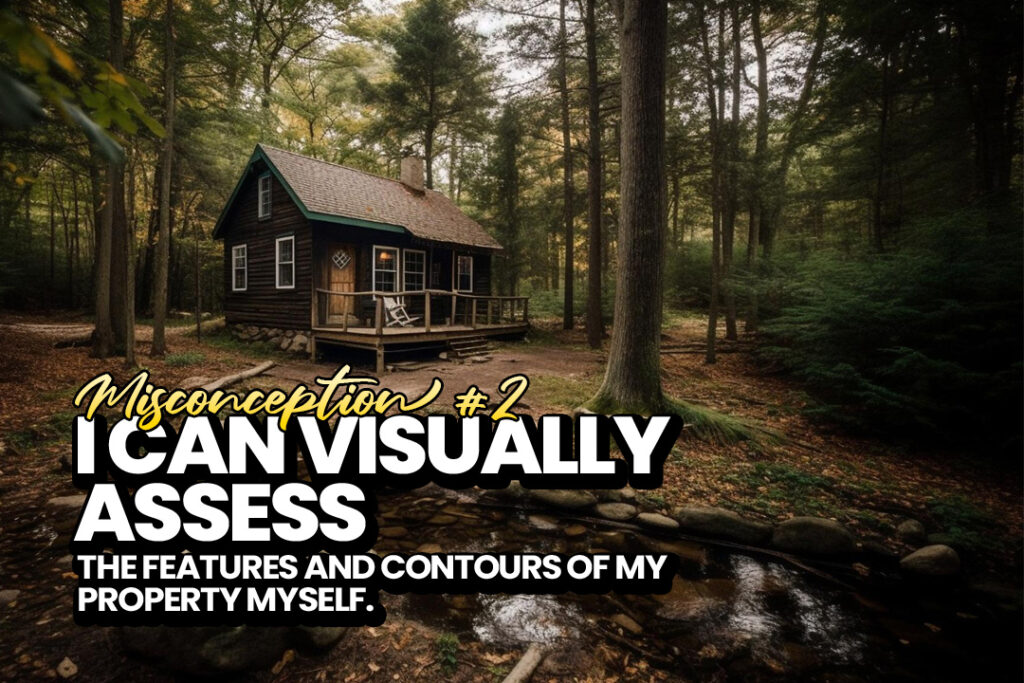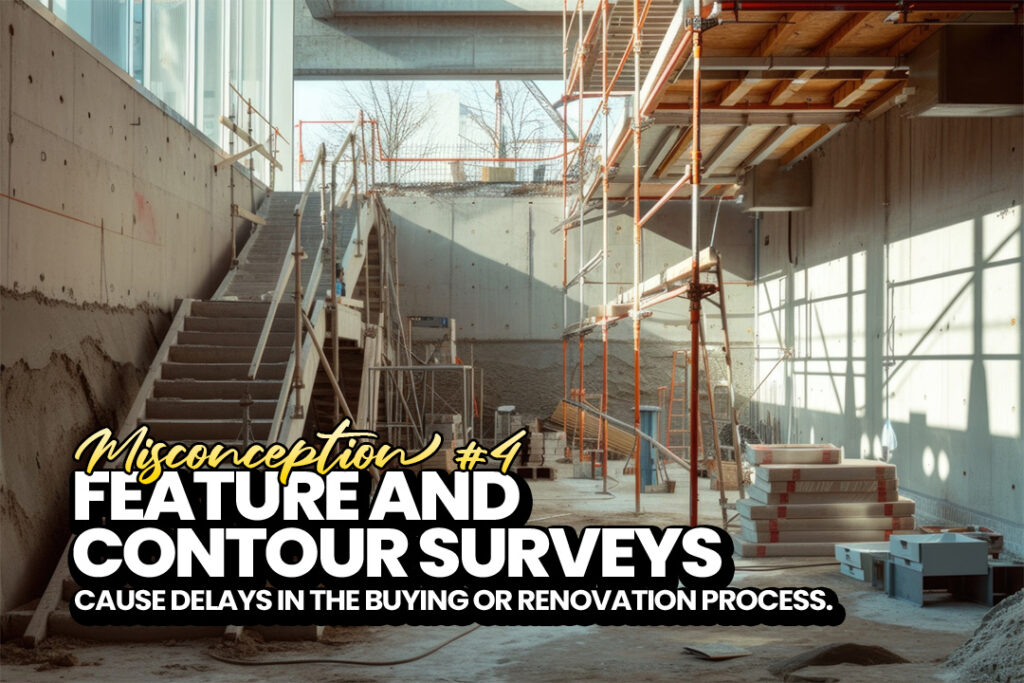
As a homeowner, you desire to maximize the potential of your property. Whether you’re considering renovations, landscaping changes, or future developments, having a clear understanding of your property’s features and contours is crucial. Enter feature and contour surveys—a powerful tool that unveils the hidden potential of your property and helps you make informed decisions. In this article, we will debunk common misconceptions surrounding these surveys and shed light on the truth behind their value.
Misconception #1: Feature and contour surveys are not necessary for smaller renovations.

The truth is, the size of your property does not dictate the need for a feature and contour survey. Regardless of whether you have a small suburban lot or a vast rural estate, these surveys provide essential information about your property’s characteristics. By gaining insights into its features, you can make informed decisions, avoid potential issues, and optimize the use of your land—regardless of its size. Most councils require a Site feature and contour survey for all development applications, whether you are building a new house, installing a pool, or just adding a new room.
Misconception #2: I can visually assess the features and contours of my property myself.

While visual assessments may provide some insights, they often fall short when it comes to accuracy and detail. Feature and contour surveys employ specialized equipment and techniques to precisely measure elevation changes, boundaries, and critical features invisible to the naked eye. Relying on professional surveys ensures accuracy and helps you steer clear of potential mistakes or oversights that could impact your property decisions.
Misconception #3: Feature and contour surveys are expensive and not worth the investment.

Contrary to this belief, feature and contour surveys are a valuable investment in your property’s future. While there is a cost associated with these surveys, the benefits they offer outweigh the upfront expense. They provide comprehensive information that helps you avoid costly surprises, make informed decisions, and plan renovations or developments efficiently. By embracing these surveys, you gain peace of mind and safeguard your investment.
Misconception #4: Feature and contour surveys cause delays in the buying or renovation process.

While it’s true that feature and contour surveys take time to conduct, they are a necessary step to ensure accuracy and prevent future complications. Professional surveyors work efficiently to complete the process promptly, utilizing their expertise to streamline the overall buying or renovation process. The time invested in obtaining accurate information upfront saves time and potential setbacks down the line, enabling you to move forward confidently.
Misconception #5: I don’t need a feature and contour survey if I’m not planning any major changes to my property.

Feature and contour surveys offer value beyond major changes or developments. Even if you’re considering minor modifications or routine maintenance, these surveys provide essential information. Understanding your property’s features, slopes, and drainage patterns empowers you to plan smaller improvements, address potential issues, and ensure that even minor changes align with your property’s unique characteristics.
Misconception #6: My real estate agent has provided enough information about the property’s features.

While real estate agents offer valuable insights, they may not possess the expertise or tools to provide comprehensive details about features and contours. Professional surveys conducted by qualified surveyors offer an unbiased and accurate assessment. By relying solely on agent information, you may miss crucial information about your property’s characteristics and potential challenges. Supplementing agent insights with professional surveys ensures a comprehensive understanding.
Conclusion:
By debunking these misconceptions, we shed light on the true value of feature and contour surveys. They are not limited by property size, provide accurate insights beyond visual assessments, offer a valuable return on investment, streamline the property process, cater to minor changes, and complement real estate agent information. Embracing feature and contour surveys unlocks the hidden potential of your property, empowering you to make informed decisions and optimize its use. Don’t let misconceptions hold you back—tap into the power of feature and contour surveys and unleash the full potential of your property.







